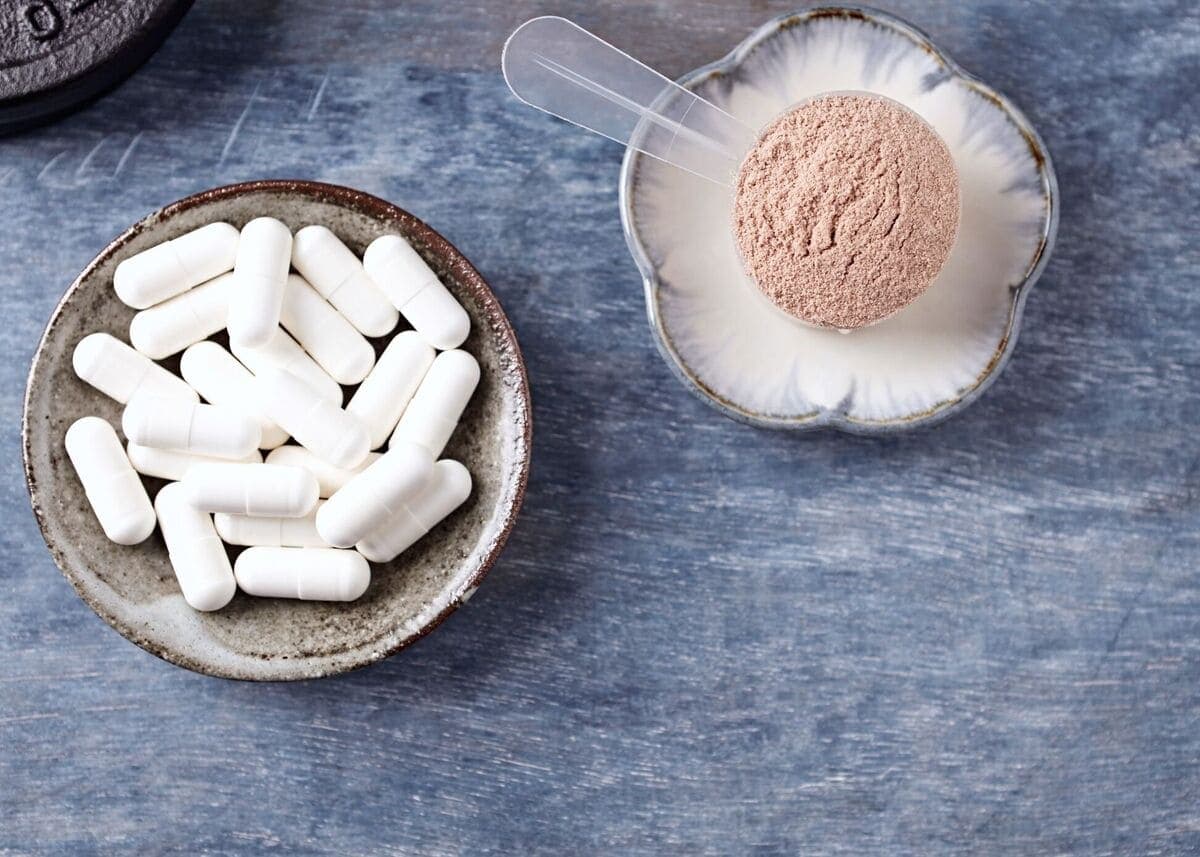The Ultimate Guide to the Best Creatine: When to Take It for Maximum Results

September 26, 2024
Ever wondered how to unlock your full potential at the gym? Whether you're a seasoned athlete or just starting your fitness journey, understanding when to take creatine can make a significant difference in your performance. With so many options out there, finding the best creatine and knowing the optimal time to consume it can be a game-changer for your workout routine. In this ultimate guide, we'll delve into the science and practical tips to help you maximize your results.
Should You Take Creatine Before or After Your Workout?
When it comes to maximizing the benefits of the best creatine supplements, timing plays a crucial role. A common question among fitness enthusiasts is whether it's more effective to take creatine before or after a workout. Let's dive into what the research says.
Taking Creatine Before Your Workout
Some athletes prefer taking creatine before exercising, believing it will provide an immediate boost in strength and energy. The idea is that by saturating your muscles with creatine beforehand, you'll enhance your performance during the workout.
While this sounds logical, studies suggest that the immediate effects of creatine supplementation on a single workout session are minimal. Creatine works by increasing the phosphocreatine stores in your muscles over time, which helps regenerate ATP (adenosine triphosphate), the primary energy currency of cells.
Taking Creatine After Your Workout
On the other hand, taking creatine after your workout might be more beneficial. Post-workout, your muscles are more receptive to nutrients due to increased blood flow and insulin sensitivity. Consuming creatine during this window can enhance its uptake into muscle cells.
A study published in the Journal of the International Society of Sports Nutrition found that participants who took creatine immediately after their workouts experienced greater increases in lean body mass and muscle strength compared to those who took it before exercising.
So, What's the Best Approach?
The difference between pre- and post-workout creatine supplementation might be subtle, but if you're aiming for maximum results, timing it after your workout could offer a slight edge. Ultimately, consistency in taking creatine is more important than the specific timing. Ensuring your muscles are consistently saturated with creatine is key to reaping its full benefits.
Common Misconceptions About Creatine Timing
When it comes to creatine supplementation, myths and misconceptions abound. Let's debunk some of the most common misunderstandings to help you make informed decisions about your creatine intake.
Myth 1: Creatine Causes Immediate Muscle Gain
Some believe that taking creatine will lead to instant muscle growth. While creatine does help increase muscle mass, it's not a magic pill. The initial weight gain often comes from water retention in muscle cells, not actual muscle tissue. Over time, with consistent training and proper nutrition, creatine can contribute to increased muscle mass.
Myth 2: Loading Phases Are Necessary
You might have heard that you need to load up on creatine by taking high doses for the first week. While a loading phase can saturate your muscles faster, it's not mandatory. Taking a standard dose of 3-5 grams daily will achieve the same saturation levels over a longer period without the potential for gastrointestinal discomfort associated with high doses.
Myth 3: Creatine Is Only for Bodybuilders
Creatine isn't just for those looking to bulk up. It's beneficial for anyone engaged in high-intensity, short-duration exercises, such as sprinting, swimming, or even team sports like soccer and basketball. It can enhance performance by providing quick energy bursts.
Myth 4: Timing Doesn't Matter at All
While consistency is crucial, completely disregarding timing might not yield optimal results. As discussed earlier, taking creatine post-workout could offer slight benefits over pre-workout consumption. However, the most important factor is ensuring you take it regularly to maintain muscle saturation.
Myth 5: All Creatine Supplements Are the Same
Not all creatine supplements are created equal. The best creatine products often contain pure creatine monohydrate, backed by scientific research. Some products may include unnecessary additives or use less effective forms of creatine. Always check the label and opt for reputable brands.
How to Take Creatine for Maximum Results
Ready to optimize your creatine intake? Here's a step-by-step guide to help you get the most out of the best creatine supplements.
Our Top Recommendations

Optimum Nutrition Micronized Creatine Monohydrate Powder
Micronized for easy mixing, supports muscle growth and endurance.
See on Amazon$0.35 per 5g serving

Nutricost Creatine Monohydrate Micronized Powder
Third-party tested, non-GMO, 5g of pure creatine per serving.
See on Amazon$0.2 per 5g serving

NSF Certified, supports muscle power and recovery.
See on Amazon$0.46 per 5g serving

ProMix Creatine Monohydrate Powder
Micronized, additive-free, ideal for performance and recovery.
See on Amazon$0.36 per 5g serving

NOW Foods Sports Nutrition Unflavored
100% pure creatine, GMP certified, boosts strength and endurance.
See on Amazon$0.2 per 5g serving
Step 1: Choose the Right Creatine
- Opt for Creatine Monohydrate: It's the most researched and proven form.
- Check for Quality: Select products from reputable brands with third-party testing.
- Avoid Unnecessary Additives: Pure creatine monohydrate is sufficient; extra ingredients may not offer additional benefits.
Step 2: Determine Your Dosage
- Standard Dose: 3-5 grams per day is sufficient for most people.
- Consider a Loading Phase (Optional): If you want to saturate your muscles faster, take 20 grams per day (split into four doses) for 5-7 days, then reduce to the standard dose.
Step 3: Timing Your Intake
- Post-Workout Consumption: Take creatine immediately after your workout to maximize absorption.
- Consistency is Key: If you can't take it post-workout, choose a time you can stick to daily.
- Combine with Carbohydrates: Consuming creatine with a carb-rich meal can enhance uptake due to increased insulin levels.
Step 4: Mixing Creatine Properly
- Use Warm Water or Liquid: Creatine dissolves better in warm temperatures.
- Stir Thoroughly: Ensure it's fully dissolved to improve absorption and reduce stomach discomfort.
- Avoid Acidic Beverages: Mixing with acidic juices may degrade creatine over time.
Step 5: Stay Hydrated
- Increase Water Intake: Creatine draws water into muscle cells, so staying hydrated is crucial.
- Monitor Your Hydration Levels: Especially important during intense training or hot weather.
Step 6: Track Your Progress
- Keep a Workout Journal: Note any changes in strength, endurance, and muscle mass.
- Adjust as Needed: If you experience side effects or lack of results, consult a healthcare professional or adjust your dosage.
By following these steps, you'll be well on your way to maximizing the benefits of creatine. Remember, combining creatine supplementation with a balanced diet and consistent training program is the best approach to achieving your fitness goals.
Conclusion
Creatine is a powerful tool in enhancing athletic performance and achieving fitness goals. Understanding when to take creatine can make a significant difference in your results. While the timing may offer slight advantages—such as taking it post-workout for better absorption—the most critical factor is consistency. By selecting the best creatine supplement and incorporating it into your daily routine, you're setting yourself up for success.
Remember, supplements are just one piece of the puzzle. Pairing creatine with a well-rounded training program and proper nutrition will amplify your efforts. So, whether you're aiming to build muscle, increase strength, or improve overall performance, make creatine a part of your strategy.
Ready to take your fitness journey to the next level? Start implementing these tips today and experience the difference that the best creatine can make. If you found this guide helpful, feel free to share it with your friends or check out our other articles on optimizing your supplement regimen.






